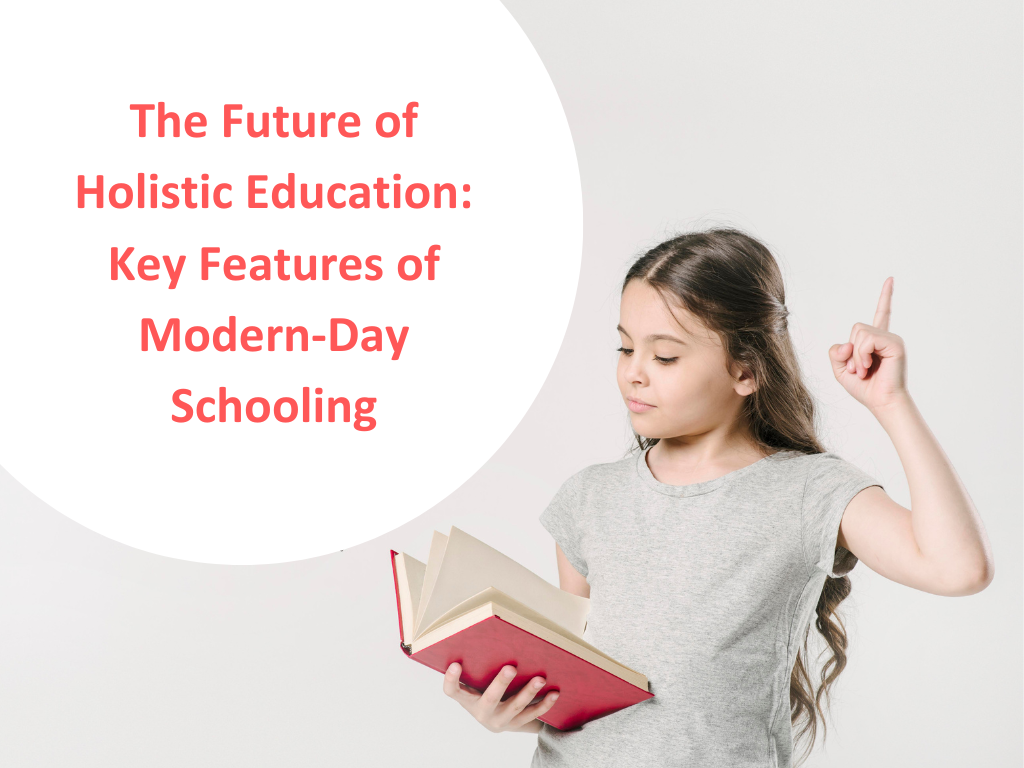Introduction
The very essence of education has witnessed a transformative change over the decades. While traditional methods focused predominantly on academic knowledge, modern pedagogies emphasize the holistic development of an individual. But what does holistic education entail? And how are modern day schools embodying its principles? We at K.R. Mangalam Global School, GK-I shall delve deep into these facets.
- The Evolution of Learning Environments
Today’s educational spaces are not just confined to four walls and a blackboard. They’ve evolved to become vibrant hubs of interaction and inspiration.
- Flexibility in Design: Modern classroom layouts are dynamic. They can be swiftly reconfigured to support diverse learning activities. This flexibility goes beyond physical arrangements; it extends to daily schedules and even curriculum structures.
- Nature Integration: Nature, with its serene and rejuvenating aura, is being integrated into daily learning. Whether it’s biology lessons in the garden, literature classes under a tree, or simply reading corners with abundant natural light and greenery, nature is a staple in the modern classroom.
- Tech Integration: From smart boards to digital assignments and online collaboration tools, technology is intertwined with education. It’s not just about using gadgets; it’s about leveraging them to foster deeper understanding and global connections.
- Emphasis on Emotional and Social Learning
In an increasingly interconnected world, human skills like empathy, communication, and collaboration are paramount.
- Mindfulness Practices: Students today are equipped with techniques to handle stress, anxiety, and emotional turmoil. Through meditation, guided visualization, and reflective exercises, they’re taught to stay grounded and focused.
- Collaborative Learning: Team-based projects, group discussions, and peer evaluations emphasize the importance of working harmoniously with others. They highlight the value of diverse perspectives and collective problem solving.
- Mentorship and Guidance: Peer mentoring, counseling sessions, and even external workshops are commonplace. They provide students with platforms to voice concerns, seek advice, and learn from varied experiences.
- Customizable Curriculum
Recognizing the diverse interests and capabilities of students, modern curricula offer avenues for personalization.
- Learning Paths: Traditional subjects are now often complemented with specialized modules. Students can dive deep into niche areas, from environmental science to digital arts or even entrepreneurial ventures.
- Interdisciplinary Approach: Real-world problems are multifaceted. Hence, projects today require students to don multiple hats. An endeavor to build a sustainable town, for instance, would weave in concepts from economics, environmental science, design, and more.
- Exposure to Modern Tools: It’s not uncommon to find students dabbling in robotics, creating digital art, or even building simple AI models. Modern tools are not reserved for specialized courses but are integrated across subjects.
- Physical Health and Holistic Well-being
The connection between a healthy body and a sharp mind is undeniable. Modern schools are placing significant emphasis on physical health.
- Diverse Physical Education: Traditional sports now share the playground with yoga sessions, aerobics classes, and even dance lessons. The focus is not just on competition but overall well-being and enjoyment.
- Nutritional Focus: Gone are days of candy bars and sodas in school canteens. Nutritional meals, health camps, and even basic cooking lessons form a part of the school’s health initiative.
- Arts, Creativity, and Exploration
Arts and creativity serve as outlets for expression, innovation, and even understanding complex concepts.
- Expanding the Horizon of Arts: Schools are fostering environments where students can explore varied arts, from pottery and sculpture to digital design and filmmaking.
- Creativity Across Subjects: Art isn’t confined to dedicated periods. Teachers are integrating creative tasks within traditional subjects. Imagine learning geometry through art or understanding history through drama!
- Reimagining Assessments
Assessments are no longer just year-end exams. They are diverse, continuous, and reflective of real-world tasks.
- Project-Based Assessments: Instead of rote learning, students might be tasked with projects where they apply concepts, collaborate, and present findings.
- Feedback Over Grades: Modern assessments focus on feedback. Rather than just a grade, students receive detailed insights on their strengths and areas of improvement.
- Self and Peer Assessments: Encouraging introspection and constructive feedback, students often evaluate their work and that of their peers.
- Preparing for a Global World
In a globalized era, students are prepared to be global citizens, understanding and respecting cultural nuances.
- Cultural Exchange Programs: Interactions with students from around the globe, either through physical exchanges or virtual collaborations, are common.
- Multilingual Education: Learning multiple languages is encouraged, not just for communication but as a window into diverse cultures.
- Global Issues and Ethics: Topics such as global warming, international politics, and ethical dilemmas are discussed, making students aware and empathetic global citizens.
Conclusion
Holistic education is not a trend; it’s the future. We at We at K.R. Mangalam Global School, GK-I, one amongst top 10 IB schools in Delhi understands that education isn’t just about filling minds with facts but about nurturing well-rounded individuals equipped to tackle the challenges of tomorrow. As the world evolves, one can only anticipate further integration of these holistic principles, making learning a truly enriching journey.
